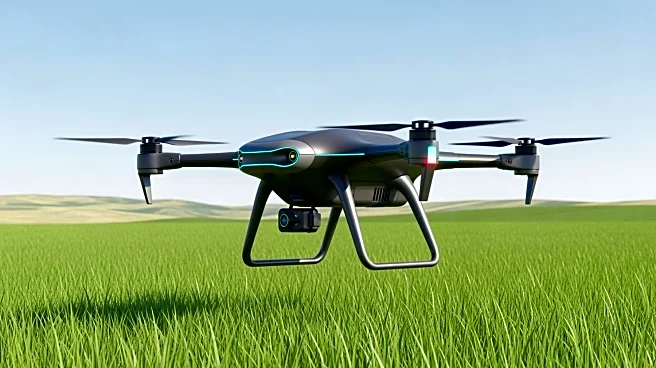What's Happening?
Penn State's College of Agricultural Sciences is launching a project to train doctoral candidates in AI-powered precision agriculture tools, funded by a $238,500 grant from the USDA's National Institute
of Food and Agriculture. The initiative aims to address challenges in tree fruit production by developing systematic solutions using AI and precision tools. The project will train three doctoral students, focusing on reducing waste, increasing resilience, and optimizing water use, fertilizer application, and pest control. Led by Long He, associate professor of agricultural and biological engineering, the program will provide students with research opportunities, mentorship, and career planning.
Why It's Important?
This training program is significant as it addresses the shortage of agricultural scientists skilled in AI and precision tools, which are crucial for modernizing farming practices and adapting to climate change. By equipping doctoral candidates with these skills, the program aims to foster innovation in climate-smart agriculture, potentially leading to more sustainable and efficient farming methods. The initiative also emphasizes recruiting students from underrepresented backgrounds, promoting diversity in the field. The collaboration between academia, industry, and farming communities could enhance the adoption of advanced technologies in agriculture.
What's Next?
The trained doctoral candidates are expected to emerge as leaders in using AI to improve farming practices and adapt to climate change. Their work will be shared through conferences, publications, and events, potentially influencing broader adoption of AI and precision tools in agriculture. The program may also lead to increased collaboration between Penn State and fruit growers, fostering innovation and resilience in the industry. As the project progresses, it could serve as a model for similar initiatives, encouraging other institutions to invest in training programs that integrate technology with agriculture.










